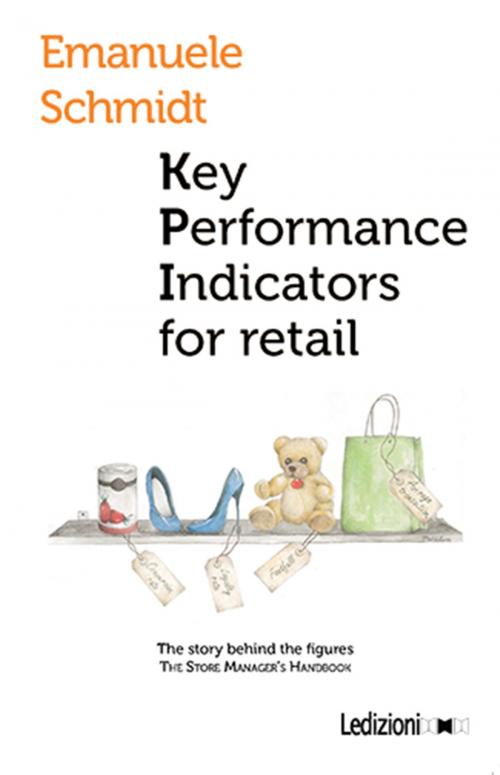| Author: | Emanuele Schmidt | ISBN: | 9788867054183 |
| Publisher: | Ledizioni | Publication: | February 8, 2016 |
| Imprint: | Ledizioni | Language: | English |
| Author: | Emanuele Schmidt |
| ISBN: | 9788867054183 |
| Publisher: | Ledizioni |
| Publication: | February 8, 2016 |
| Imprint: | Ledizioni |
| Language: | English |
What works well in my store? Where can I make improvements? How can I get more people to visit my store? How can I sell more? How can I sell “better”? Stores come in all shapes and sizes: large and small, food and non-food, department and speciality, mono-brand and multi-brand, independent and franchisees… Each business, each product category, and each strategy has its own specific characteristics but all stores operate under the same “basic laws” of commerce. This book was written in the belief that “trading” is a profession that demands some skills that always apply irrespective of the type of business formula used. One of these is the ability to understand and use key performance indicators for retail so that we can: Interpret store results; Make decisions to improve them; Monitor the efficacy of these decisions. A real operational handbook, written for real people who manage stores on a daily basis, that describes the key performance indicators most commonly used in retail: footfall, transactions, conversion rate, sales, average sale per transaction, average selling price, average units per transaction, percentage of revenue from promotions and markdowns, sales per category, penetration, margins, loyalty, customer satisfaction and mystery shopping, inventory turnover and stock coverage, damaged items, shrinkage, returns, personnel costs, sales per FTE, and direct operating costs. This book also explains: What an indicator is and how to calculate it; What the indicator measures; Which factors influence the indicator; Which decisions will steer the indicator in the desired direction. Practical exercises help the reader to master these concepts and apply them immediately in his or her store.
What works well in my store? Where can I make improvements? How can I get more people to visit my store? How can I sell more? How can I sell “better”? Stores come in all shapes and sizes: large and small, food and non-food, department and speciality, mono-brand and multi-brand, independent and franchisees… Each business, each product category, and each strategy has its own specific characteristics but all stores operate under the same “basic laws” of commerce. This book was written in the belief that “trading” is a profession that demands some skills that always apply irrespective of the type of business formula used. One of these is the ability to understand and use key performance indicators for retail so that we can: Interpret store results; Make decisions to improve them; Monitor the efficacy of these decisions. A real operational handbook, written for real people who manage stores on a daily basis, that describes the key performance indicators most commonly used in retail: footfall, transactions, conversion rate, sales, average sale per transaction, average selling price, average units per transaction, percentage of revenue from promotions and markdowns, sales per category, penetration, margins, loyalty, customer satisfaction and mystery shopping, inventory turnover and stock coverage, damaged items, shrinkage, returns, personnel costs, sales per FTE, and direct operating costs. This book also explains: What an indicator is and how to calculate it; What the indicator measures; Which factors influence the indicator; Which decisions will steer the indicator in the desired direction. Practical exercises help the reader to master these concepts and apply them immediately in his or her store.















